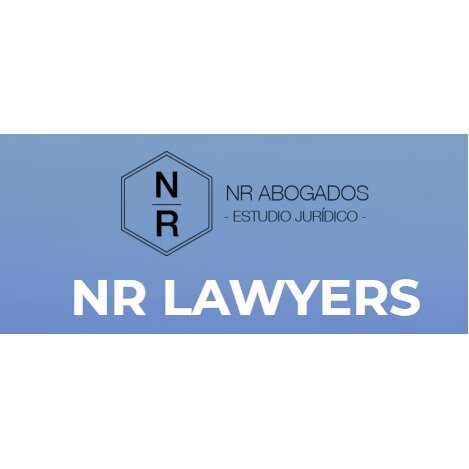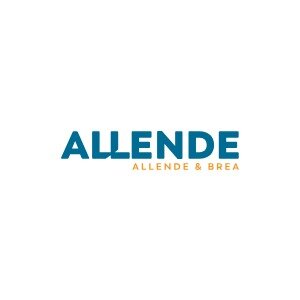Best Public-Private Partnerships (PPP) Lawyers in Argentina
Share your needs with us, get contacted by law firms.
Free. Takes 2 min.
Or refine your search by selecting a city:
List of the best lawyers in Argentina
About Public-Private Partnerships (PPP) Law in Argentina
Public-Private Partnerships, often referred to as PPPs, are collaborations between the government and private sector entities to finance, build, and operate projects traditionally provided by the public sector. In Argentina, PPPs are commonly used in infrastructure - such as roads, energy, water, transportation, and social facilities - where private companies participate in the development, operation, or management of essential public services. The Argentine legal framework for PPPs aims to promote investment, improve efficiency, and share risks between the public and private sectors.
Why You May Need a Lawyer
Navigating the complex legal terrain of PPPs in Argentina can be challenging for both domestic and international parties. Common situations where legal assistance is crucial include:
- Understanding tender and bidding processes for PPP projects
- Drafting, reviewing, or negotiating PPP contracts and related documents
- Assessing project risks and regulatory compliance
- Handling disputes between the public entity and private contractor
- Ensuring tax and labor law compliance within PPP arrangements
- Advising on financing structures and investment protections
- Navigating changes in government policies or project terms
A lawyer with expertise in PPP law can help protect your interests, ensure legal compliance at every stage, and facilitate smooth interactions with governmental authorities.
Local Laws Overview
Argentina established a dedicated legal regime for PPPs through Law No. 27.328 (adopted in 2016) and its related regulatory decrees. This legislation sets forth guidelines and procedures for structuring PPP agreements, including the following key aspects:
- Scope: The law covers infrastructure, services, and productive projects across various sectors.
- Flexibility: Contracts can be adapted to the unique needs of each project and allow a mix of private and public financing.
- Risk Allocation: Risks are shared between the public and private partners according to agreed-upon terms.
- Bidding Procedures: PPP projects are generally awarded following competitive and transparent procurement processes.
- Dispute Resolution: The legal framework allows for domestic and, in some circumstances, international arbitration for resolving conflicts.
- Government Oversight: The Ministry of Economy and other agencies oversee the approval and monitoring of PPP projects.
- Transparency: Information regarding PPP projects and contracts is published to ensure public accountability.
PPP contracts must comply with broader Argentine laws, including administrative, labor, environmental, and tax regulations.
Frequently Asked Questions
What are Public-Private Partnerships (PPP)?
PPPs are cooperative agreements between public agencies and private companies to deliver or improve public infrastructure and services, with both parties sharing responsibilities, risks, and benefits.
Are PPPs common in Argentina?
Yes, Argentina has promoted PPPs for projects in transport, energy, water, and social infrastructure. The regulatory framework is designed to attract both domestic and foreign private partners.
What is the main PPP law in Argentina?
The main legal framework is Law No. 27.328 on Public-Private Partnerships and its implementing decrees, setting rules for the design, execution, and oversight of PPP projects.
Who can participate in PPP projects in Argentina?
Both Argentine and foreign companies, alone or in consortiums, can participate in PPP projects, provided they meet the bidding requirements established for each project.
How are PPP projects awarded?
PPP contracts are typically awarded through competitive public tenders, ensuring transparency and equal treatment of all bidders.
What types of projects can be developed under PPPs?
Most infrastructure and service projects, such as highways, energy plants, hospitals, and schools, can be implemented using PPP schemes in accordance with the legal regulations.
What are the typical contract terms and duration?
PPP contract terms vary by project but often range from 5 to 35 years, depending on the investment and operational requirements.
How are disputes resolved in PPP agreements?
Disputes can be settled through administrative channels, local courts, or through domestic and international arbitration as specified in the PPP contract.
What risks are involved in PPP projects?
Risks may include project delay, cost overruns, regulatory changes, payment default, and unforeseen events. These risks are typically shared and allocated in the PPP contract.
What protections exist for foreign investors?
Argentina’s PPP law provides for equal treatment of foreign investors, and contracts may include clauses to submit disputes to international arbitration, offering additional protections.
Additional Resources
Those seeking information or legal advice about PPPs in Argentina may benefit from the following resources:
- Ministry of Economy - Secretariat of Public-Private Partnerships
- Official Online Portal for PPP Projects (Sitio Oficial de Proyectos PPP)
- Argentine Chamber of Construction
- National Public Procurement Office
- Local and international law firms specializing in infrastructure and project finance
- International finance institutions, such as the World Bank and Inter-American Development Bank, offering PPP guidelines and investment support
Next Steps
If you are considering participating in a PPP project or need legal advice regarding an existing PPP agreement in Argentina, it is important to consult an attorney with expertise in PPP and public contract law. Start by gathering details about your intended or ongoing project and any communication with public agencies. Reach out to a reputable law firm or legal advisor who can:
- Assess your eligibility and prepare documentation for participation
- Explain the relevant statutory and regulatory requirements
- Assist in negotiating contract terms and managing risk allocation
- Advise on compliance, tax, and labor matters
- Represent you in the bidding process or in resolving disputes
Taking these steps early can help you navigate the PPP process with greater confidence and ensure sound legal protection for your interests in Argentina.
Lawzana helps you find the best lawyers and law firms in Argentina through a curated and pre-screened list of qualified legal professionals. Our platform offers rankings and detailed profiles of attorneys and law firms, allowing you to compare based on practice areas, including Public-Private Partnerships (PPP), experience, and client feedback.
Each profile includes a description of the firm's areas of practice, client reviews, team members and partners, year of establishment, spoken languages, office locations, contact information, social media presence, and any published articles or resources. Most firms on our platform speak English and are experienced in both local and international legal matters.
Get a quote from top-rated law firms in Argentina — quickly, securely, and without unnecessary hassle.
Disclaimer:
The information provided on this page is for general informational purposes only and does not constitute legal advice. While we strive to ensure the accuracy and relevance of the content, legal information may change over time, and interpretations of the law can vary. You should always consult with a qualified legal professional for advice specific to your situation.
We disclaim all liability for actions taken or not taken based on the content of this page. If you believe any information is incorrect or outdated, please contact us, and we will review and update it where appropriate.
Browse public-private partnerships (ppp) law firms by city in Argentina
Refine your search by selecting a city.

















